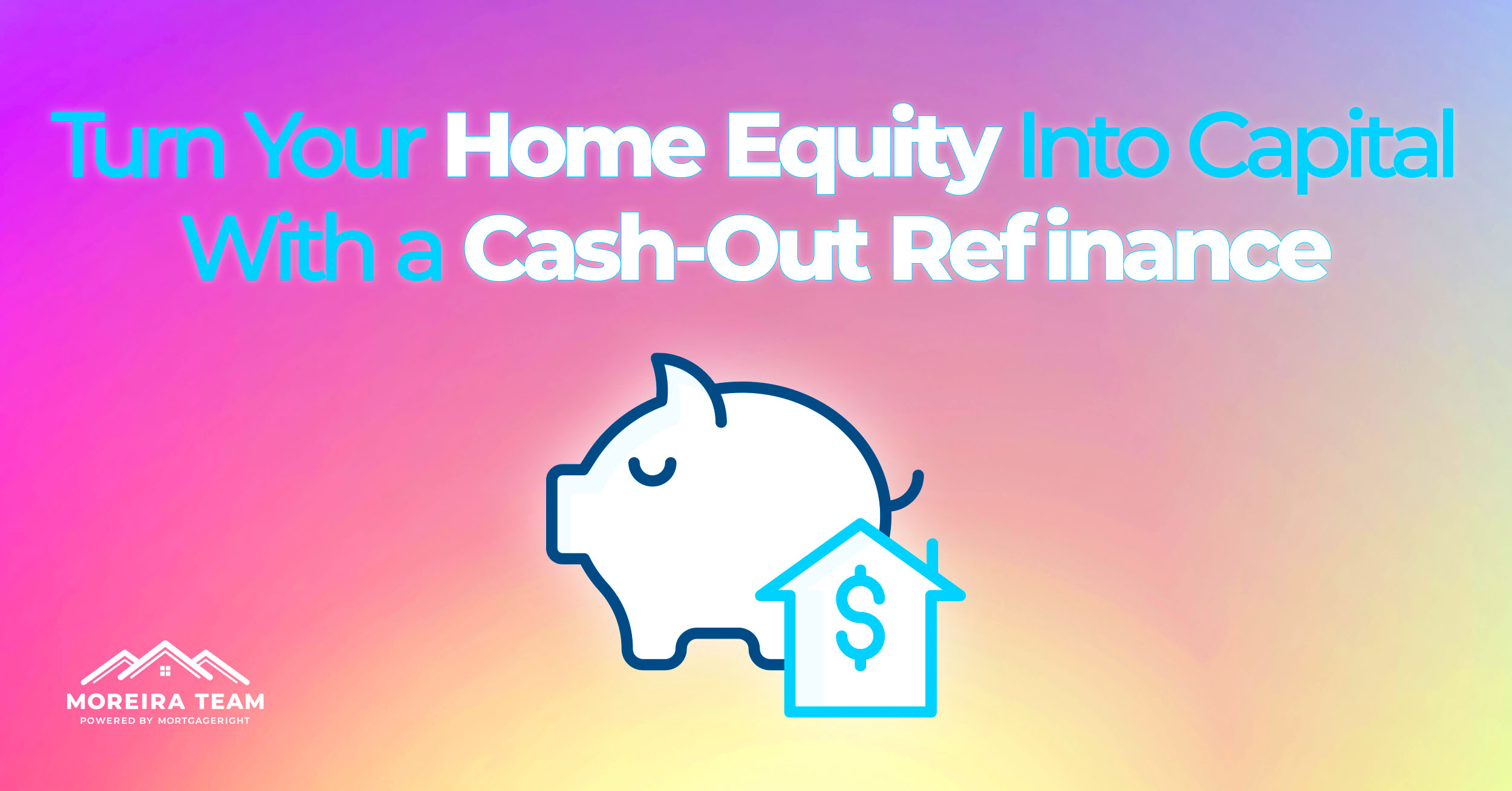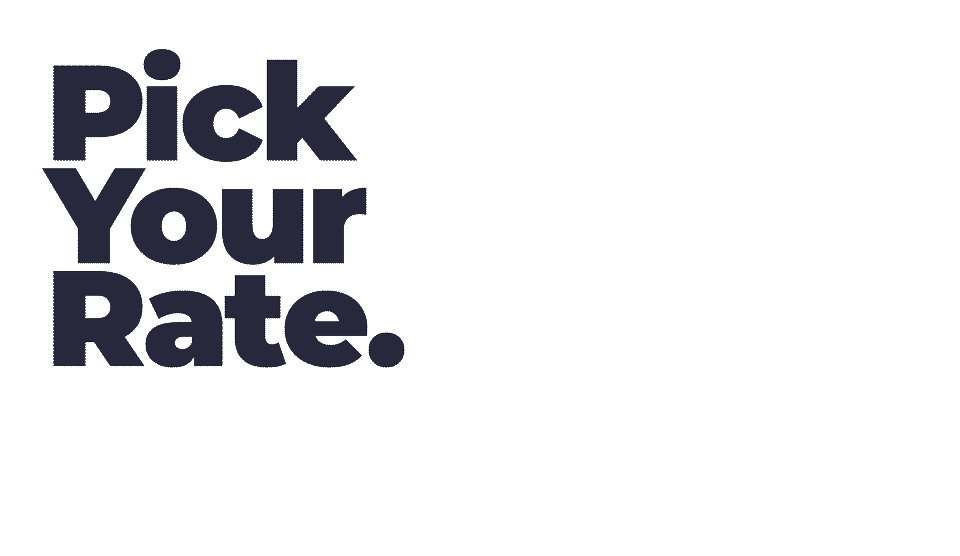
In this article
- Key Takeaways
- Is a Cash-Out Refinance Right for You?
- Why Would I Consider a Cash Out Refi?
- College Tuition
- Home Improvement
- Investment Opportunity
- Second Home
- Emergency Expenses
- Debt Consolidation
- Turn Your Equity Into Cash
- When Cash-Out Isn’t an Option
- Home Equity Loan
- Home Equity Line of Credit
- Debt Consolidation Loan
- No-Cost Refinance
- Did you use our refinance cash out mortgage calculator?
Key Takeaways
- A cash-out refinance is a popular way for homeowners to quickly convert the equity they’ve invested in their home into cash.
- You can quickly determine your financial benefits using a refinance cash out mortgage calculator.
- Cash-out refinances can help pay for significant expenses like college, home improvement, debt consolidation, and medical bills.
- Even if you don’t qualify for a cash-out refinance, there are options for capitalizing on your home’s equity.

Is a Cash-Out Refinance Right for You?
There are many ways to refinance a mortgage and even more reasons to do it, but a cash-out refinance justifies some of the cost to refinance mortgage loans. In a cash-out refinance, the mortgage rate or principal can be adjusted, turning the home equity into cash for other needs.
The cash-out refi is a popular tool for homeowners who need to consolidate debt, make home improvements, and pay for college (to name a few).
While specific debt consolidation and home improvement loans exist (more on that later), they are more restrictive and often require the money to be spent in a certain way as a contingency.
The cash-out option provides homeowners with a lump sum they can use at their own discretion. Our refinance cash out mortgage calculator can help you decide if a cash-out refi is right for you.
The best part about a cash-out refinance is that it can recoup money you’ve already invested. It’s your money.
Why Would I Consider a Cash Out Refi?
The main benefit of a cash-out refinance is its flexibility. If you’re refinancing to consolidate debt, a cash-out refinance gives you the flexibility to pay that debt off as you see fit. You don’t need to follow specific guidelines if you want to use the money for home improvements.
To help determine your potential savings, use a refinance cash out mortgage calculator.
Here are some of the most common reasons people opt for a cash-out refinance:
College Tuition
These days, parents could easily confuse the cost of college with the cost of their home’s mortgage. If a family buys a house in preparation for children, by the time those children are ready for college, the homeowners should have enough equity in their home to help absorb some of those costs.
Many homeowners see this as a way of investing in their children in the long term because the home continues to provide value to them long after they move out.
Home Improvement
Since home improvements typically raise a home’s value, it makes sense to leverage that home’s equity through a cash-out refinance. The increased value can compensate for increased principal or renewed loan terms.
And unlike more restrictive home improvement-specific loans, you don’t have to follow guidelines for spending the money.
Investment Opportunity
The greatest investment opportunities seem to come along in moments of the least financial liquidity. But with a cash-out refinance mortgage, homeowners can easily turn the money they’ve already invested in their home into investable capital.
When a promising investment arises, use a cash-out refinance to find the funds you need to capitalize on it.
Second Home
If your home is well on its way to being paid for, a cash-out refinance can help you pay for another, but maybe this time a cabin in the mountains or a quiet beachfront bungalow.
A cash-out refinance helps homeowners turn their primary home investment into a sizable down payment on their next home. Taking cash out is a popular option for homeowners as their children leave the nest.
Emergency Expenses
You never know when you’re going to need extra cash. Life comes at you fast, from emergency medical bills to unexpected air conditioner replacements.
With a good mortgage lender, you can complete a cash-out refinance in a matter of days and have the money you need to cover your expenses.
Debt Consolidation
For homeowners with many disparate sources of debt, a cash-out refinance is a great way to turn those overwhelming monthly bills into one simple payment.
Consumer debt has been on the rise in recent years, and most consumers have most of their debt tied to credit cards and high-interest, short-term loans. Those loans have higher interest rates, while mortgages have much lower interest rates, so this approach can save significant amounts of money over time.
Turn Your Equity Into Cash
We listed the most common reasons for a cash-out refinance above, but the truth is that you don’t need a reason to refinance—it’s your house.
If rates are lower than when you bought your home, celebrate the lower rates with a cash-out refinance. Or maybe you’ve been in your home for a long time and don’t plan on leaving anytime soon. Turn your equity into some quality-of-life upgrades.
Use the refinance cash out mortgage calculator to see if you qualify and estimate your savings and cash potential.
When Cash-Out Isn’t an Option
For some homeowners, a cash-out refinance isn’t an option. Most lenders won’t allow borrowers to take cash out below a certain credit score threshold (usually in the mid-600s).
If you are in a similar position, don’t fret. There are still plenty of options for using your home’s equity.
Home Equity Loan
A home equity loan isn’t technically a refinance but rather a second loan. Where a cash-out refinance would replace your mortgage, a home equity loan allows you to borrow more money using your current equity as capital.
Home Equity Line of Credit
This option, commonly known as a HELOC, works like a credit card. You can use it as needed up to your equity limit.
This route is common for homeowners expecting large but still undetermined expenses. These are most often used to pay for college or home improvements.
Debt Consolidation Loan
A debt consolidation loan is a personal loan earmarked for specific debt payments. It is a popular option for people with multiple sources of high-interest debt. They can consolidate all that debt into one loan, typically with lower interest rates and monthly payments.
However, debt consolidation loan funds are dispersed under the condition of loan repayment and are often in the form of checks written directly to the creditors.
No-Cost Refinance
A no-cost refinance works similarly to a cash-out refinance. However, where a cash-out refinance is used to pull equity out, a no-cost refinance is usually intended to lower a mortgage rate or monthly payments without accruing upfront costs.
While it sounds attractive (and is in many cases), homeowners still pay for the no-cost refinance. With the no-cost option, underwriters simply roll those expenses into the lifetime of the loan.
Did you use our refinance cash out mortgage calculator?
If you’re strapped for cash and have equity in your home, a cash-out refinance is a great option. You can easily evaluate potential savings by entering your details into our refinance cash out mortgage calculator.
See if you qualify for a great rate on a cash-out refinance from the Moreira Team. Our team of lenders helps homeowners find the best rates and suitable options for refinancing their homes every day.




